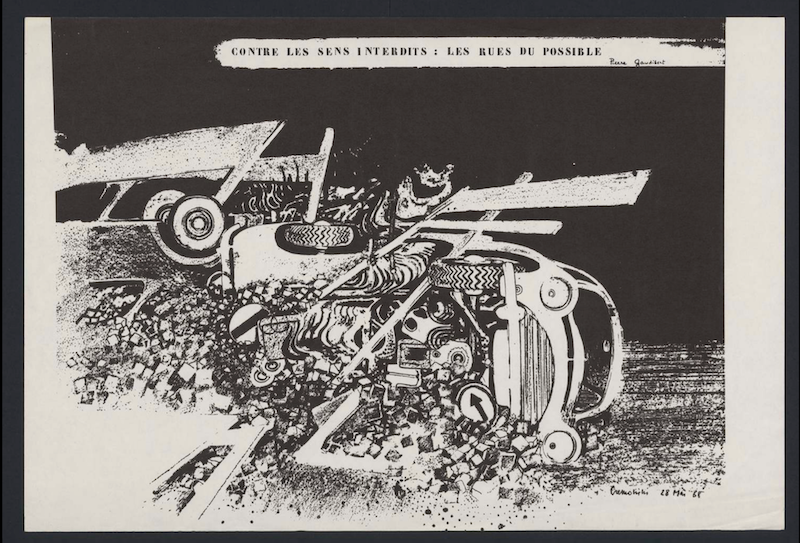Disappointed utopianism in the Philosophy Department emerged from a history of revolutionary philosophy in turmoil. In postwar France, in the face of Cold War confrontation and colonial revolutions, philosophy was a political space: it had a substantial Marxist presence and was often felt to be in crisis. Intellectuals like Sartre were devising new relations to mass media and even to television (Chaplin 2007). The public universities were rapidly expanding, as the new human sciences competed with the traditional humanities. As protests against Vietnam, against bourgeois conservatism and against traditional education broke out into the student movement of 1968, radical politics crystallized around the trope of “the revolution.”
The roots of disappointed utopianism lie in the tumultuous experience of May 1968, and to the broader history of radical philosophy that emerged through 20th century French Marxism. Yet I would propose that the foundational event in this specific genealogy was not exactly May 1968 itself. Rather, the foundational moment was the loss of the revolution that occurred in its immediate aftermath. “The revolution” in its fullest sense echoed across the Vincennes Philosophy Department’s first decades as a lost object, getting more and more buffered and mediated, forming an unreachable or even comic horizon.

This chapter proposes that as the “revolutionary” moment faded, disappointed utopianism began to crystallize in the Philosophy Department through several separate processes. Disappointment and ambivalence flourished and multiplied at the newly established University of Paris 8. A race-blind universalism enabled white French intellectuals to avoid thinking race, even while critiquing colonialism. A newly collective radicalism took form through the Department’s collective debates, public texts, and early mission statements. Gradually, utopian commitments began to get entrenched as collective representations and habits of the social environment, rather than within subjectivity or consciousness. As the 1970s went on, sectarian Marxists’ broadside attacks on philosophy and bourgeois culture declined in frequency, and Marxism itself came in for strong criticism. Labor conflicts contributed to the marginalization of women and to masculine in-fighting.
As the weight of the past added up and the founding figures retired or died, the Department acquired a sense of self-consciousness that it had not had at the outset. A reflexive sense of death, historicity and loss entered the milieu. It became available to itself as an object with a history. This sense of radical history was memorialized and arguably mythicized in later decades, and promptly became a new form of alienation for younger and more marginalized actors. The resulting radical institution was always racialized, gendered and nationalized; this chapter is a study in the formation of its political hegemony, which was a predominantly French, male, and white hegemony. It is only barely surprising that this hegemony was also a place of strife and ambivalence.
Note: Much of this chapter is essentially a political history of dominant actors, drawing on a documentary and literary archive that privileges certain voices over others. If it becomes dull to read that Michel Foucault said that and Gilles Deleuze said this, you are very welcome to skip ahead to other chapters.